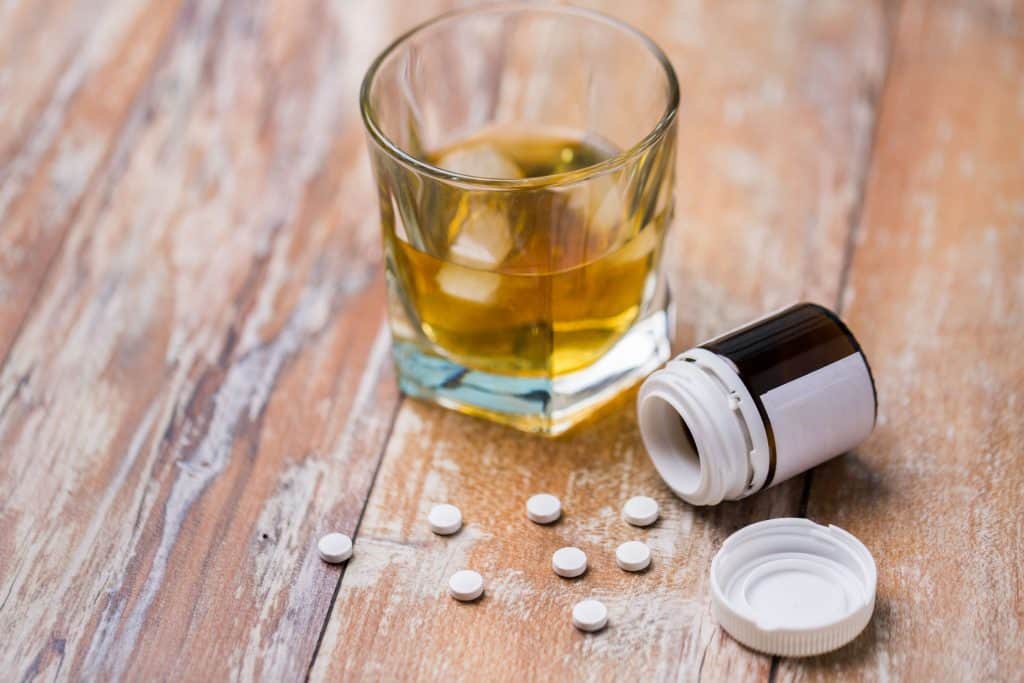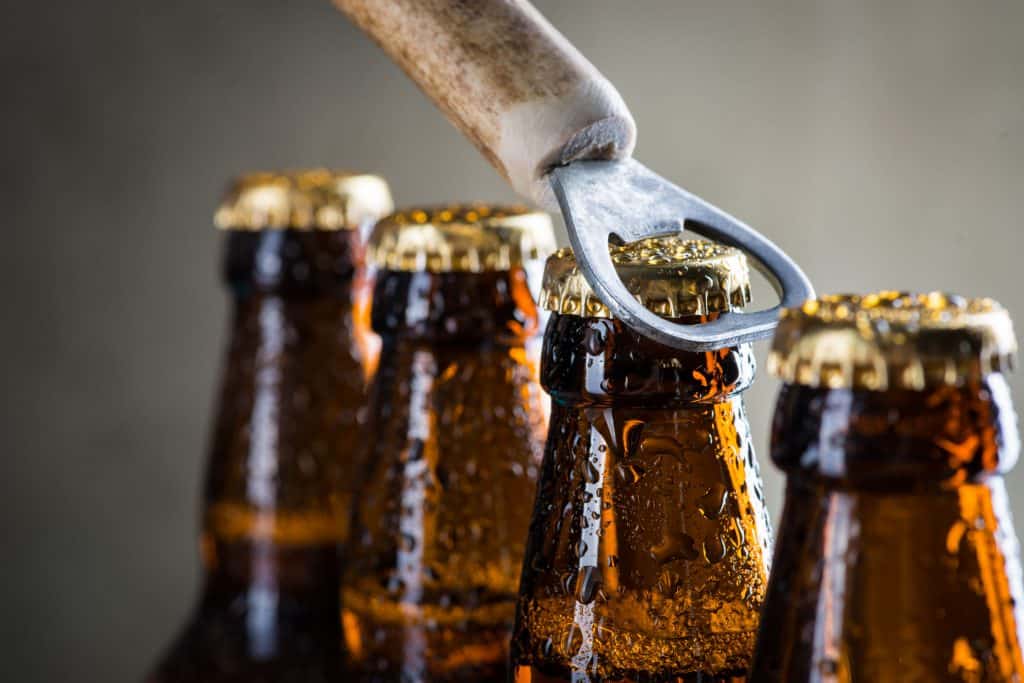Beta Blockers and Alcohol – The Effects, Safety Concerns, and Symptoms
Posted by Prescription Hope - See Editorial Guidelines (Last Updated On: Mon Jul 10 2023)
Beta blockers are often prescribed to lower blood pressure in individuals that have hypertension. But is it safe to combine beta blockers and alcohol, and what are the effects?
This article will cover the safety concerns and symptoms of consuming beta blockers and alcohol at the same time. First, here is a quick answer to get us started, then we will discuss the specifics.
Beta Blockers and Alcohol: It is generally recommended that you do not mix beta blockers and alcohol. This is because beta blockers are used to lower blood pressure, and alcohol can also cause a drop in blood pressure. The result of this could be dangerously low blood pressure (hypotension).
With this takeaway answer in mind, let’s get into the details surrounding this topic.

What are beta-blockers?
Beta blockers are known as beta-adrenergic blocking agents and are prescribed for treating high blood pressure (hypertension).
This type of medication works by blocking the effects of epinephrine (adrenaline). In doing so, the heart is able to beat more slowly and with less force.
Beta blockers can also open up your veins and arteries, which allows for increased blood flow.
Common brand name forms of beta blockers include:
Beta blockers are commonly prescribed for the treatment of the following conditions:
- Arrhythmia (irregular heartbeat)
- Heart failure
- Angina (chest pain)
- Migraine
- Heart tremors
- Palpitations
Common side effects of beta blockers include:
- Cold hands or feet
- Fatigue
- Weight gain
- Depression
- Shortness of breath
- Trouble sleeping
Now that you have an understanding of beta blockers let’s cover how alcohol can affect some of the conditions that beta blockers are used to treat.
Alcohol’s effect on conditions that are treated with beta blockers
Alcohol, though it is great for social interactions, can be very harmful to your health, especially in large amounts.
Firstly, alcohol can increase your heart rate. Heavy drinking regularly can lead to tachycardia, which can lead to an increased risk of heart attack or stroke in severe cases.
Though light to moderate drinking can decrease your blood pressure, long-term and heavy drinking can cause increased blood pressure. Excessive alcohol consumption can also lead to unwanted weight gain, increasing blood pressure further.
Alcohol can also lead to weakened heart muscles. If the muscles in the heart become weakened or fatigued, then the contractions become weaker. This is often called cardiomyopathy and can lead to congestive heart failure.
In addition to these effects, alcohol can increase the amount of fat in your blood. Raised fat levels can cause a build-up of plaque, potentially blocking blood flow. Blocked blood flow will result in either a heart attack or stroke.
What happens when you mix beta blockers and alcohol?
If you combine beta blockers and alcohol, you are at an increased risk of severe low blood pressure.
As we’ve discussed, beta blockers work to lower blood pressure in patients that have hypertension. It works by blocking the effect of adrenaline so that the heart beats slower and with less force.
Alcohol can lower blood pressure by making your blood vessels larger and acting as a blood thinner. Alcohol can also cause you to become dehydrated. Dehydration can lead to lower blood pressure levels.
So, the combined effect is potentially unhealthily low blood pressure levels, resulting in various symptoms.
Symptoms of low blood pressure
- Dizziness
- Lightheaded feeling
- Nausea
- Fainting
- Dehydration
- Difficulty concentrating
- Blurry vision
- Clammy and pale skin
- Shallow breathing
- Fatigue
- Depression
So can you mix beta blockers and alcohol safely?
Combining beta blockers and alcohol is generally considered unsafe and a bad idea. There are too many risks vs. the potential rewards.
Generally, mixing beta blockers and a moderate amount of alcohol is not life-threatening. However, this creates a higher risk of you fainting, which can cause you to fall and hit your head or injure yourself.
Despite the risks, we know that individuals will choose to do what they will. So, if you are going to drink while taking beta blockers, then it is recommended that you first understand how beta blockers alone affect you.
This will help you better understand how the combination of beta blockers and alcohol will affect you.

The best advice we can give is to consult your doctor regarding this topic. Each person will react differently to beta blockers and alcohol. Therefore, discuss your thoughts and concerns with your healthcare provider.
Does dosage matter?
The dosage of beta blockers do matter when alcohol comes into the mix.
Patients should only be taking the dose of medicine that has been prescribed by their doctor. Taking a higher dose can result in an overdose, leading to worsened side effects.
Adding alcohol into this mix will only exacerbate side effects. If you are experiencing side effects from the combination of beta blockers and alcohol, call your doctor and seek immediate medical attention.
Alternatives
Depending on the condition you are using beta blockers to treat, there are alternatives. Some alternatives are natural, and you can get them through the foods that you eat.
This would make mixing the alternatives with alcohol safer.
On the other hand, there are alternatives for alcohol. For example, if you are drinking for social reasons, then zero percent alcohol beer is an option. This allows you to enjoy the social aspects without experiencing the negative effects of alcohol.
If you are substituting beta blockers with another type of medication, you must talk to your doctor about its effects and how it will mix with alcohol.
Final thoughts
We hope this has given you some more insight into the dangers of mixing beta blockers and alcohol. Consult your doctor if you have further questions regarding your condition or the treatment you have been prescribed.
If you are in any doubt regarding this topic, it is best to air on the side of caution and avoid consuming alcohol while you are taking beta blockers.

